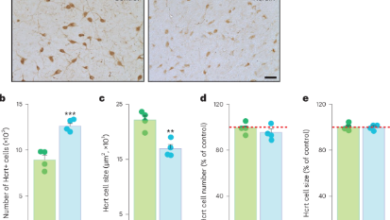Bees Turn a Blind Taste Bud to Lethal Pesticides, Reveals Latest Study

Bees Turn a Blind Taste Bud to Lethal Pesticides, Reveals Latest Study New research out of the University of Oxford has uncovered a surprising fact about our fuzzy friends, the bumblebees. Despite their keen sense of taste when it comes to sugary solutions, it turns out they are not quite the connoisseurs we thought they were.
Bees and the Pesticide Paradox: A Taste Buds Mystery Unveiled
The study reveals that bumblebees are shockingly unable to detect the taste of pesticides in nectar, even when the concentration could be lethal. It’s like trying to tell the difference between regular and decaf coffee – they just can’t quite get it right.
The Buzz on Bees and Pesticides
Now, before you start feeling sorry for these little pollinators, let’s dive into why this matters. Bees play a crucial role in pollinating crops, but their sweet tooth puts them in a sticky situation. While they happily collect nectar and pollen, they might also be sipping on some toxic pesticides. It’s like a game of culinary roulette, but with potentially serious consequences for both the bees and our crops.
Bitter Truth: Bees Fail Taste Test for Pesticides
To get to the bottom of this curious case, researchers at Oxford used some scientific sleuthing. They tested whether bumblebees could taste neonicotinoid and sulfoximine pesticides, mimicking the nectar of oilseed rape. Picture it as a bee-sized taste-testing lab – quite the buzzworthy experiment!
Sweet Tooth Surprise: Bees Defy the Odds in Pesticide Taste Tests
Using high-tech electrophysiology, the scientists eavesdropped on neurons in the bumblebee’s ‘tastebuds.’ The idea was to catch these neurons red-handed, or shall we say, red-tongued, responding to different tastes. Surprisingly, the neurons responded the same way, whether the bees were sipping on a sugar solution or unwittingly indulging in pesticide-laced nectar.
Picky Eaters? Not Quite.
In a twist that even bees themselves might find amusing, the researchers observed the bees’ feeding behavior. Turns out, these little guys are not picky eaters – they guzzled down the same amount of food, regardless of whether it had pesticides in it or not. It’s like they’re saying, “Hey, a bee’s gotta eat!”
Even when the pesticide concentration was high enough to make the bees feel under the weather, they still slurped it up like it was honey on a hot summer day. Talk about commitment to the snack!
The Sweet (and Bitter) Takeaway
So, what’s the buzz on these findings? Bumblebees can’t rely on their taste buds to avoid pesticides, which is a bit of a sticky situation for them. Lead researcher Dr. Rachel Parkinson suggests that we might need to find a non-toxic compound that tastes bad to bees. It’s like giving them a bitter pill to swallow, but in a good way – a “bee deterrent” for pesticide-treated crops that don’t need insect pollination.
Bitter Truths and Sweet Dilemmas: Decoding Bees’ Relationship with Pesticides
In a bitter-sweet twist, while the bees didn’t mind the pesticide-flavored solutions, they did show some discernment when it came to quinine. Imagine quinine as the bee equivalent of eating your veggies – not their favorite, but they’ll do it if they have to. At least now we know bees have their limits when it comes to bitterness, even if they’re not too bothered by pesticides.




